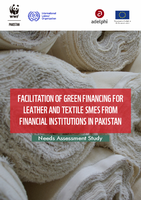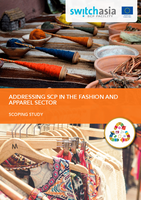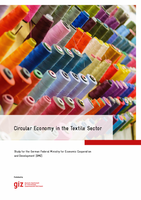Contributions Overview

Check out our YouTube channel for informative videos on the topics we are working on or information on workshops, events and webinars that we are involved in!

The textile and leather sectors are central to Pakistan’s economy and depend on the contributions of small and medium-sized enterprises (SMEs). However, the unsustainable use of resources and poor environmental management practices present a major threat to the sectors’ sustainability. In light of these intersecting challenges, WWF-Pakistan’s International Labour and Environmental Standards Application in Pakistan’s SMEs (ILES) project has set out to improve water and resource management practices and energy consumption in the textile and leather sectors, especially by resource-intensive SMEs, through multi-stakeholder approaches.

SWITCH Asia - Addressing SCP in the Fashion and Apparel Sector
The SCP Facility as part of the SWITCH-Asia Programme of the European Union aims to strengthen the implementation of national policies for Sustainable Consumption and Production (SCP) by raising awareness as well as scaling up good practice examples in the region. The facility commissioned a study on finding potential entry points for advancing SCP in the textile and apparel sector in 16 Asian target countries with the main objective to identify priority areas for regional programs regarding SCP for the textile and apparel sector.

This study examines options for establishing closed fibre cycles in the clothing and fashion industry. It provides a detailed background analysis on fibre cycles in Europe and Germany, describes the biggest drivers and obstacles and evaluates selected technologies for textile fibre recycling.
